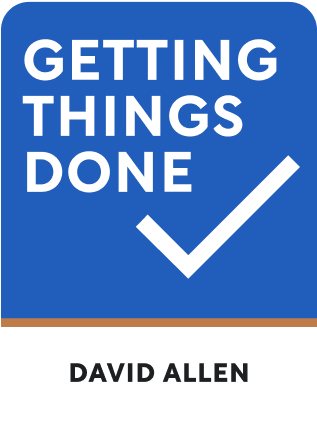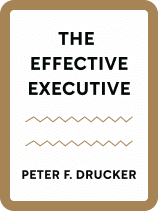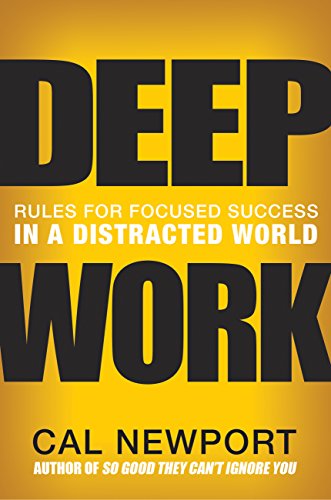

This article gives you a glimpse of what you can learn with Shortform. Shortform has the world’s best guides to 1000+ nonfiction books, plus other resources to help you accelerate your learning.
Want to learn faster and get smarter? Sign up for a free trial here .
Are you overwhelmed at work? Do you find it difficult to keep up with everything on your to-do list? Do you often find yourself working to the point of burnout?
While working hard is essential, it’s also important to find the proper balance between work and rest. In other words, you should work hard—but not to the point of exhaustion.
With this in mind, here are some strategies to help you adjust your workload without compromising performance.
Overwhelm at Work
Significant changes to daily life in the last half-century have overloaded people with work and personal responsibilities.
First, most people’s jobs are no longer restricted to the hours of 9 am to 5 pm nor to the confines of the office. These days, people are always on call via phone and email, and the effects of globalization mean you could be working with people nine time zones away. There are no boundaries to your workday, so it’s easy to become overwhelmed.
Second, the nature of work has changed from more industrial, assembly-line type work with clear, visible tasks to so-called knowledge work with much more ambiguously defined projects. Previously, you knew what your task was (for example, assemble these parts) and you knew when it was done. Now, one task can eat up a lot of your time because there’s no clear signal when you’re done.
Third, modern life requires near-constant communication with more people. Most organizations require increasing interdepartmental collaboration, so workers are no longer limited to their specifically defined roles and departments.
How to Reduce Overwhelm at Work
With the rampant pace of modern work, being overwhelmed with the demands and responsibilities of our jobs has become the new normal. But it shouldn’t be. Here are some things you can do if you’re feeling totally overwhelmed at work:
1. Improve Your Effectiveness
Many people claim that they’re overwhelmed at work and that they have to work to the point of burnout to accomplish everything they’ve been asked to do. However, for many people, their problem isn’t the workload. It’s their effectiveness.
According to Peter Drucker, most workplaces and individuals alike are too focused on being efficient rather than effective. Efficiency is getting a lot of things done, while effectiveness is choosing and getting the right things done.
If you’re feeling overwhelmed at work, ask yourself: Are you focusing on being efficient or effective? Chances are it’s the former. This is not to say that aiming for efficiency is bad. Rather, it’s that both and your company will be better off if you prioritize effectiveness.
In his book The Effective Executive, Drucker suggests five practices for improving your effectiveness:
1) Manage your time: Know exactly how you’re using your time. Work diligently to manage the limited amount of your time you can control.
2) Focus: Concentrate on a few high-impact tasks—areas where you can produce excellent results—one at a time. Set priorities and stick with them, ignoring distractions.
3) Make your unique contribution: Focus on what you personally can do to significantly impact company performance and results. Ask yourself what results you need to produce rather than what tasks you need to do.
4) Maximize strengths: Build on your strengths and those of the people around you, including your boss, to enhance their contributions and thus, the organization’s performance.
5) Make sound decisions: Focus on making only a few key decisions following a systematic process. Don’t strive for consensus but make a judgment after exploring a full spectrum of opinions, especially dissenting opinions.
These practices are interconnected, and they revolve around strategic thinking and prioritizing—that is, determining the highest-impact things you can do and making sure you get them done. Practices 1, 2, and 5—managing your time, doing key tasks, and making good decisions—all involve prioritizing; maximizing strengths (practice 4) requires knowing your unique contribution (practice 3) because it likely will relate to a strength.
The Effective Executive
by Peter F. Drucker
49 min reading time
132.9k reads
audio version available
2. Set a Budget With Your Boss for “Shallow Work”
Most activities that contribute to effectiveness will require what Can Newport (Deep Work), calls “deep work”—focused, uninterrupted, undistracted work on a task that pushes your cognitive abilities to their limit. He contrasts it with “shallow work”—tasks that are time-consuming yet not cognitively demanding—like answering emails and attending unproductive meetings. Shallow activities like that don’t tend to add much value; they only add to your workload and contribute to the feelings of overwhelm.
If your employer has expectations requiring a lot of shallow work (e.g. email response times), Newport recommends having a conversation with your boss about your schedule:
- Start with the high-level goal—the deep work components of your time generate the most value for the company. Does the boss agree? It’s important that deep work not be seen as an indulgent luxury, but rather as the best place to spend time.
- Does it make sense to restructure your time to focus on deep work?
- What are the expectations around shallow work (chats, emails, meetings)? Can you restructure your time to minimize those while still servicing the rest of the team?
Once your boss knows that you’ll be spending more of your time in deep work, they’ll adjust their expectations in kind.
3. Build a Balanced Schedule
If you’re still feeling overwhelmed, you may want to overhaul your whole work schedule—if you have the flexibility to do so. If you decide to go down this route, the first step is to envision what your successful life looks like. By doing this, you’ll be able to ignore your work’s unrealistic demands and feel less guilty focusing on working when you need to and playing when you need to. According to peak performance expert Eric Barker (Barking Up the Wrong Tree), a successful life should have four main elements: pursuing joy, reaching your goals, connecting with others, and making an impact.
Barker recommends ensuring that you’re spending time on all four of those elements. Don’t try to be perfect; just figure out what’s adequate in each category. To do so, first determine what your current schedule looks like—how much time are you spending on each element, and how much time are you wasting? Then, jot down how many hours you’d like to spend on each element, and adjust your schedule accordingly.
Worried that you can’t spend your time in your desired way because you might not be able to get all your work done? Barker proposes two solutions. First, speak with your supervisor if you need to. Ask her what she wants you to prioritize, then present a plan that makes you both happier. Say she wants you to check your email every hour, but you find doing so unproductive. When you discuss her priorities, you might learn that she simply wants to remain in the loop. You might then suggest scheduling a daily five-minute phone call with her so you can update her more efficiently without spending hours on email.
Second, Barker recommends that you schedule your workday: Pick the time you want to stop working, then decide exactly when you’ll do which projects, scheduling the ones that require the most focus early in the day. Setting aside dedicated time to do the most important work ensures that it gets done—and still allows you the time you need to enjoy other aspects of your life.
Final Words
In today’s hustle culture, many people feel overwhelmed at work. Being constantly pulled in different directions with a never-ending stream of tasks is not only stressful, but it also hinders your creativity and may even lead to burnout.
If you enjoyed our article about being overwhelmed at work, check out the following suggestions for further reading:
We feel constantly pressed for time. We feel we have to do it all. But because we’re going in so many directions, we make little progress in any of them. Yet most of these activities are trivial. As Greg McKeown, author of Essentialism puts it, we’re majoring in minor activities. The way out of this trap is to practice essentialism: “do less but better.” McKeown explains how you can distinguish the vital few from the trivial, then eliminate the nonessentials and make your optimum contribution in your life and work.
Writer and journalist Oliver Burkeman claims that humans make themselves miserable by mistakenly believing they should be able to get through all their tasks, to-dos, and chores in the time they’ve allotted them. The reality is that no matter what time management solutions they implement, humans will never have perfect control over how they spend their time. Instead, people must accept that they’ll never get as much done as they’d like and work within the parameters of a finite life. In Four Thousand Weeks, Burkeman suggests a few ways to do this that not only relieve us of the guilt of not getting everything done but also let us lead happier, more fulfilled lives.
Many people want to retire as millionaires so that they have the time and money to travel, buy luxury cars and homes, or visit with their friends and families. However, you don’t need to be a millionaire to do all these things. You don’t even need to retire.
In The 4-Hour Workweek, entrepreneur, consultant, and life coach Tim Ferriss explains how anyone can live the retired millionaire lifestyle by building their own business, automating it, and then collecting the income while they go off to live their dreams

Want to fast-track your learning? With Shortform, you’ll gain insights you won't find anywhere else .
Here's what you’ll get when you sign up for Shortform :
- Complicated ideas explained in simple and concise ways
- Smart analysis that connects what you’re reading to other key concepts
- Writing with zero fluff because we know how important your time is









